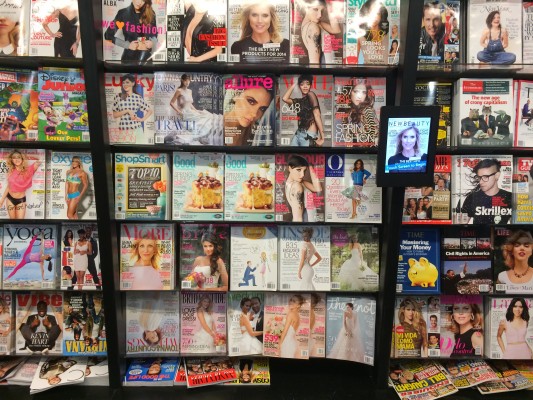Hollywood Influence on American Politics Is Not Necessarily A Bad Thing
April 2, 2014

After conducting a poll in February 2014 about the Academy Awards and Hollywood influence, CBS News released its results on March 2 and concluded that 61 percent of Americans believe that Hollywood has way too much influence on American politics than is appropriate. Of course, the fact that most of that 61 percent is made up of Republicans is telling: the majority of Republicans find it unsettling that stars are using movies as an instrument to raise social and political awareness because movies oftentimes conflict with their own beliefs and agendas.
When stars and directors make politically explicit movies or start supporting a political or social cause, people, and sometimes even the government, feel obligated to listen to them and, in some cases, to take action. Whether it’s because the majority of the public believes that Hollywood is stereotypically air-headed and has no authority in being involved in politics or their beliefs are being jeopardized, the truth doesn’t change: they want things to be compartmentalized. In an ideal world, the potatoes and the gravy won’t mix, but in a country in which freedoms of speech and expression are stressed to the point of exhaustion, we can’t expect people to keep quiet about anything. Whether these people’s thoughts are legitimate is a different story.
Not everyone in Hollywood has a Harvard degree and is a political and social activist like Natalie Portman, but that doesn’t mean they shouldn’t be involved in politics. They’re like an extension of the press in that it’s almost inevitable for them to not comment on or create movies to show political inefficacy or bulldoze politics. With movies like Jack Nicholson’s “As Good As it Gets” (1997) advocating health care reform, and recent Oscar Best Picture nominee “The Dallas Buyers Club” coinciding with the proposal of a Congressional bill—“Right to Try”—to legalize more drugs for the terminally ill, it seems as if Hollywood’s influence, whether too much or too little, is conducive to the political and social development of the United States.
In fact, Social Science Quarterly published a study in 2013, titled “Moving Pictures? Experimental Evidence of Cinematic Influence on Political Attitudes” in which an experiment was conducted to see if there is a change in political attitudes after watching movies, particularly popular films, with political and social undertones. The authors concluded that movies like “JFK”(1991) and “As Good As It Gets” did change the minds of Americans, causing them to either change their party affiliates, stop donating to campaigns or change their votes to candidates who best reflect their—or rather, the movies’—views. These kinds of films often speed up the process of reform because they force the audience watching these movies to open their eyes to issues that have long been repressed.
“The Dallas Buyers Club,” for example, shines a light on an issue that has been in existence for a number of decades but has been, and still is, largely disregarded. Ironically, this movie gives more ammunition to the “Right to Try” bill because they both concern allowing terminally ill patients to partake in trials of developing drugs that have not yet been approved by the Food and Drug Administration (FDA). A bill like that will now probably get a lot more support. In fact, on March 25, The KDVR channel in Colorado reported that a House committee on the Colorado Legislature has already voted and passed on The Dallas Buyer Bill to the full House.
It’s certainly not a good habit to develop for people to solely begin to take action or change their political attitude only after being subtly encouraged by celebrities and directors, but it’s not necessarily a bad thing.
That’s not to say that all Hollywood influence is great for the development of society. According to the Washington Times, the Motion Picture Association of America (MPAA) has increased its funding to political nonprofit groups between 2009 and 2012 because they were pushing for bills to stop online piracy as well as to protect online intellectual property, a move which could give them too much control over politicians. The pendulum swings both ways though: politicians often resort to entertainment and Hollywood to help them appeal to the public.
Movies are a form of escapism for people because they often suspend reality. But when we bring political and social messages onto the screen, it forces people to acknowledge that there’s a problem and that it is urgent and pressing enough for directors, writers and actors to create a movie to spotlight it so the issues become blatantly clear. That forces us to think about whom we have elected to office and sometimes even forces politicians to do something to endear themselves to public opinion. It’s only when these same entertainers ignore the public to directly reach out to politicians by throwing money at them that their influence and power become a problem and detrimental to the growth of the level of transparency in American society.











